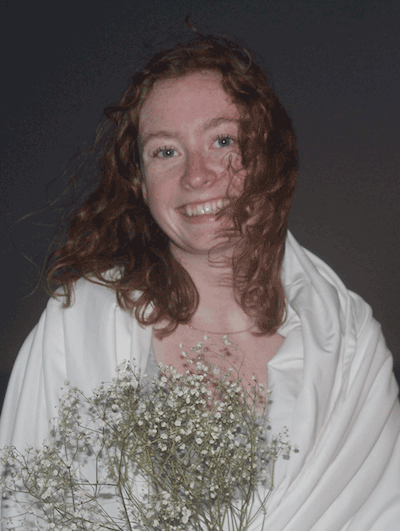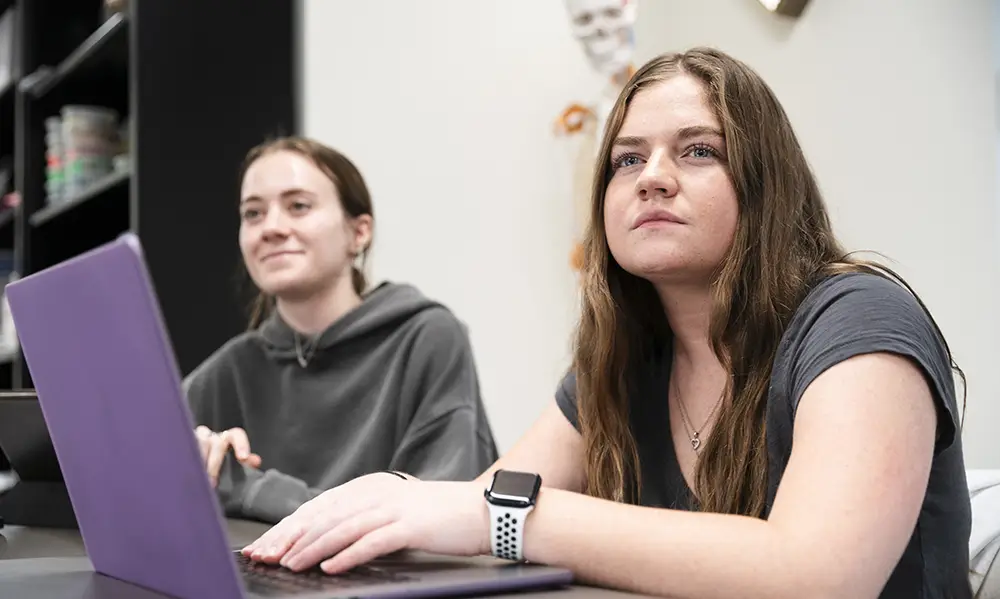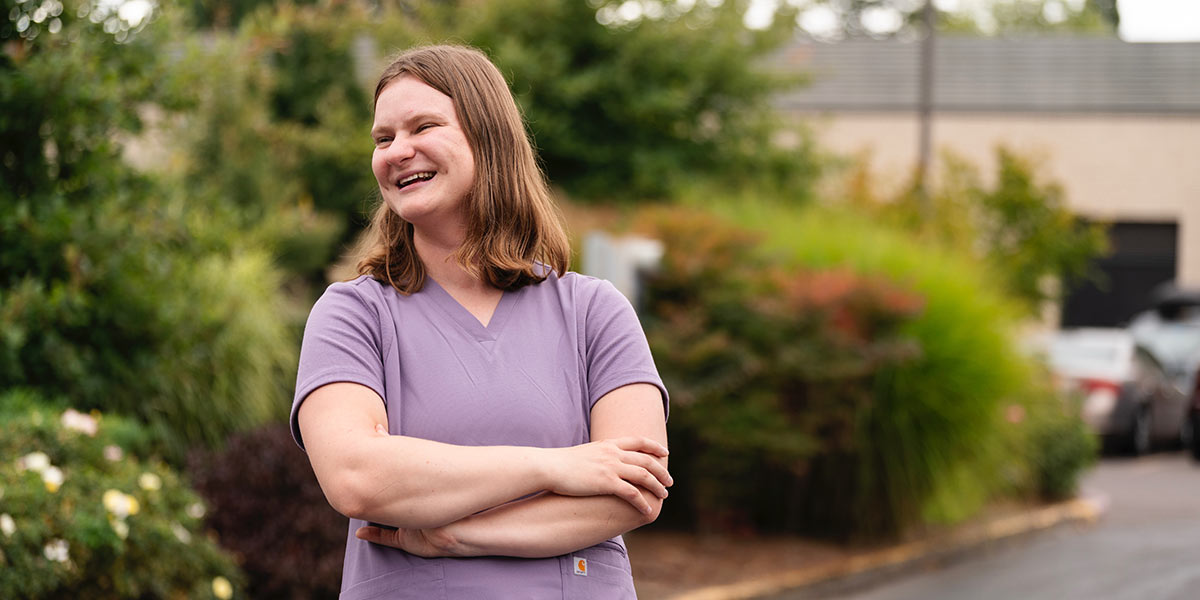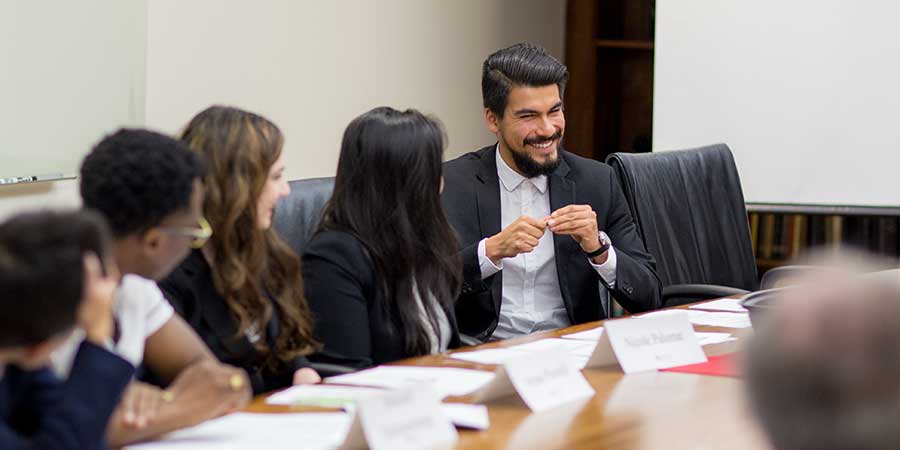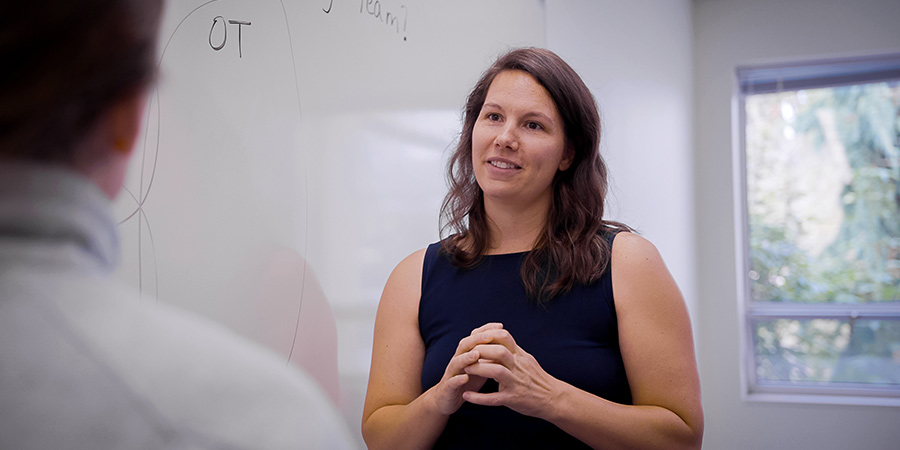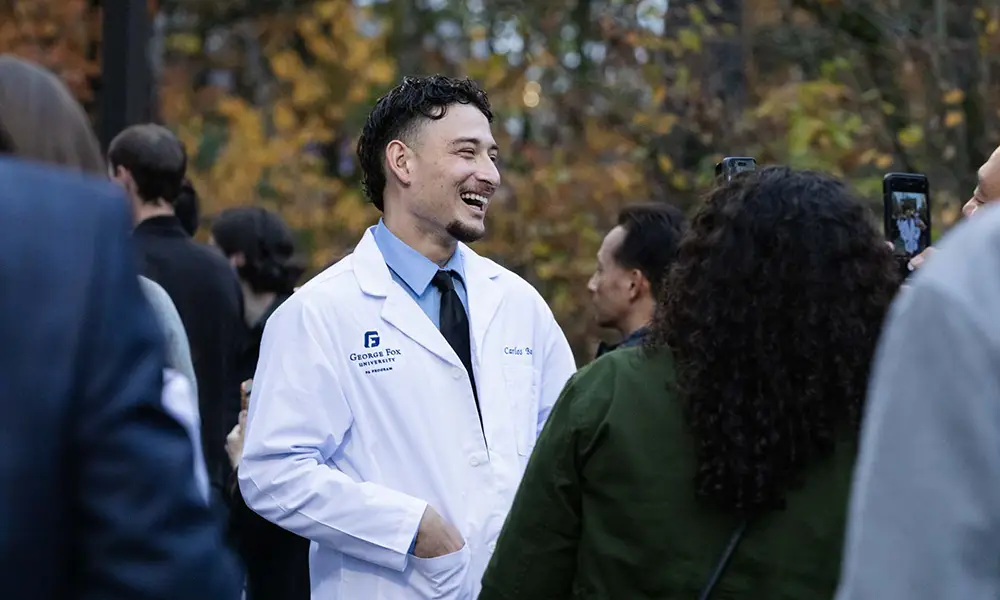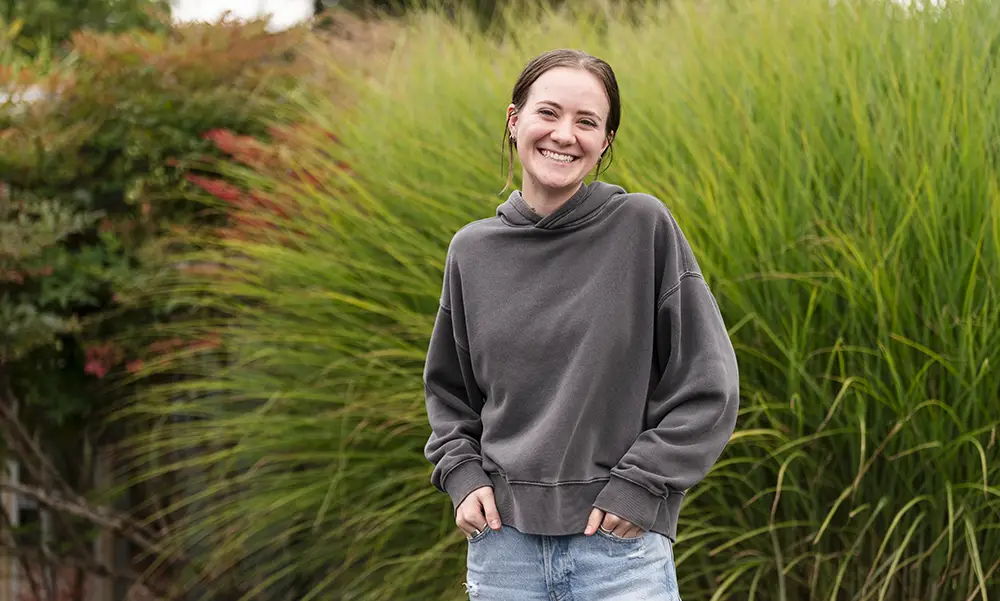
Lending a Helping Hand
by Emmy King
Occupational therapy student Laurel Anderson is passionate about finding creative ways to help people achieve their everyday goals.
Laurel Anderson applied to George Fox as an undergraduate in 2019, but she ended up choosing a school closer to her home in Southern California. Now, six years later, she’s finally made it to Newberg as part of the first cohort of occupational therapy doctorate students.
“When I was looking into OT schools and George Fox came up, I knew it was my chance to apply again,” Laurel says. “I got in, and I finally made the move.”
She came across the occupational therapy field while she was majoring in human biology at Biola University and soon realized it was the healthcare field she’d been looking for.

“I always wanted to be in healthcare, and for a while I bounced around between nurse practitioner, physician’s assistant and physical therapy,” she says. “Then I discovered occupational therapy at a health careers club at Biola.”
Occupational therapy allows Laurel to engage the innovative part of her brain while doing the one thing she wanted to do all along: help people.
“What drew me to OT is the creativity aspect of it,” she says. “Coming up with therapy modalities and different types of intervention plans requires creativity.”
For Laurel, occupational therapy means lending a helping hand to anyone in need. “I’ve been able to volunteer a lot with elderly populations and with kids, and I have come to see how OT is important in any population,” she says.
One individual she worked with stands out in her memory.
“There was this elderly gentleman who was a painter his whole life, but he had tremors and his hands would shake,” Laurel recalls. “I got to watch him and help him learn to steady a paintbrush so he could engage in his lifelong career of being a painter.”
Occupational therapists help people do the things that bring joy and autonomy into their lives. Those things vary from person to person, so OTs develop treatment plans based on the distinct needs of each patient they serve.
“OT is so versatile,” Laurel says. “I’ve enjoyed working with all sorts of populations, including the kids and with the elderly. But going forward, I think I want to do rehab OT.”
Taking the Next Step
By enrolling in George Fox’s OT program, Laurel has taken the next step in her education and career. She especially values the professional support she has found in her professors at George Fox.
“I really appreciate the smaller cohort and the intentionality of the professors,” she says. “They really want to get to know you, and it’s a lot easier to have access to your professors in a smaller cohort.”
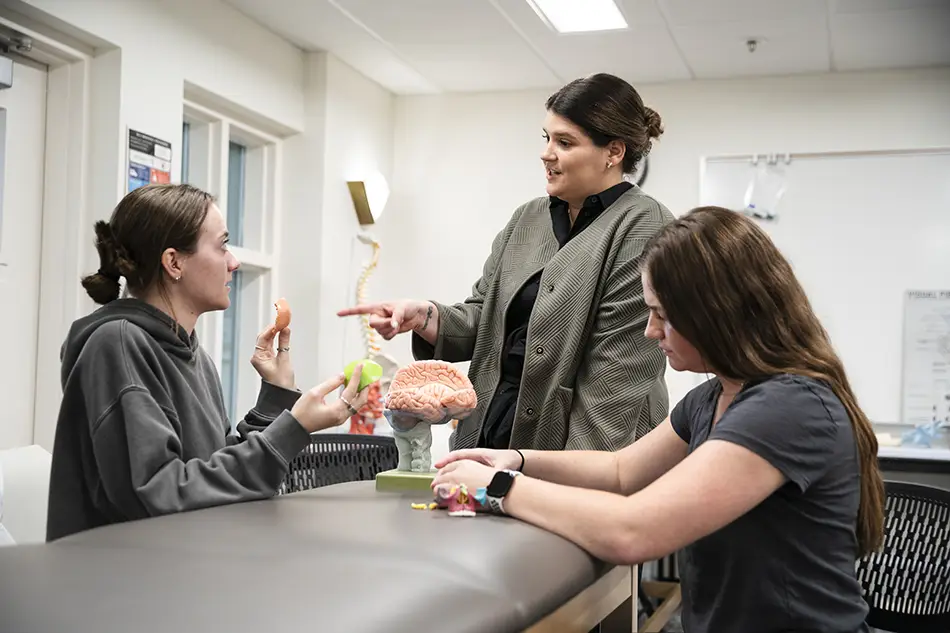
But Laurel hasn’t just connected with the faculty; she’s been able to connect with her peers as well.
“This is a very collaborative program where you are able to mingle and interact with all of your classmates as you tackle group work together,” she says.
Along the way, Laurel is continuing to learn how to provide holistic, individualized care to clients with diverse backgrounds and challenges.
“People are a sum total of all their past experiences, including their education, personality, and environmental factors,” Laurel says. “OTs have to recognize that every single person is unique. No one person has the same context, so you have to be creative and innovative in order to best serve them in their particular context.”
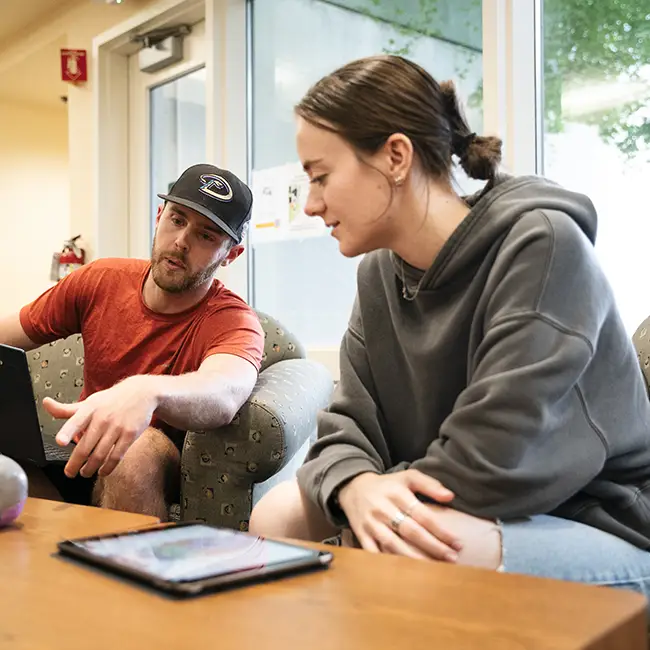
Ultimately, she looks forward to helping others professionally, which in turn gives her a sense of purpose.
“In order to live a productive and meaningful life, you need to help other people be productive and find meaning in their life,” she says.
Laurel still has a ways to go before she’s a full-fledged occupational therapist, but right now she’s enjoying every step along the way.
“I’m really excited to be back in the learning process, and to be taking that next step by furthering my knowledge in graduate school,” Laurel says. “In undergrad, we learned that foundational knowledge, and now we’re learning how to apply that to real patients.”
